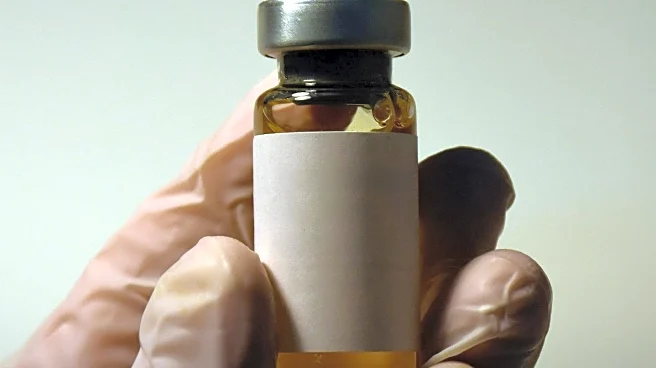What's Happening?
Researchers from the University Hospital Bonn, the University of Bonn, and the University of Hamburg have published a study indicating that low-dose steroids may effectively treat crescentic glomerulonephritis
(cGN), a severe form of kidney inflammation. Traditionally, high doses of glucocorticoids are used to suppress the immune system and treat cGN, but these can lead to significant side effects such as diabetes, osteoporosis, and severe infections. The study, published in Science Translational Medicine, utilized modern single-cell and spatial gene sequencing to identify pro-inflammatory neutrophils that exacerbate kidney damage. The research demonstrated that small, repeated doses of glucocorticoids could block the formation of these harmful cells, potentially offering a safer treatment option.
Why It's Important?
The findings from this study could revolutionize the treatment of severe kidney inflammation by reducing the reliance on high-dose steroids, which are associated with numerous side effects. If confirmed in clinical trials, this approach could lead to safer therapies for patients, minimizing the risk of complications such as diabetes and osteoporosis. Additionally, the research may have broader implications for other autoimmune and inflammatory diseases where steroids are currently used in high doses, potentially improving patient outcomes and quality of life.
What's Next?
The next steps involve clinical trials to confirm the efficacy and safety of low-dose steroid treatments for cGN. If successful, this could lead to changes in medical guidelines and practices, offering a new standard of care for patients with severe kidney inflammation. Medical professionals and researchers will likely monitor the outcomes closely, as the approach could influence treatment protocols for other inflammatory conditions.
Beyond the Headlines
This research highlights the potential for precision medicine, where treatments are tailored based on specific cellular and genetic insights. The ability to target harmful immune cells directly in inflamed tissues could lead to more effective and personalized therapies, reducing the need for broad-spectrum immunosuppressive drugs and their associated risks.









